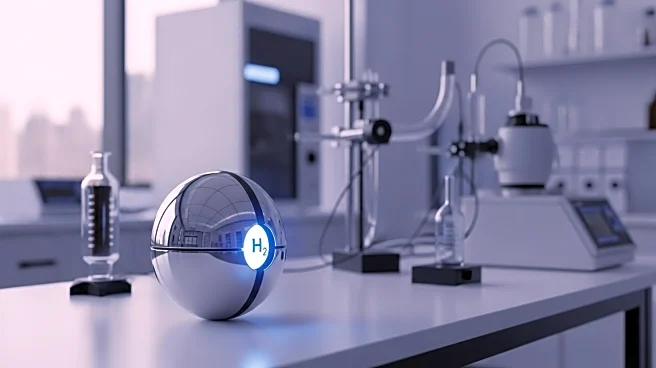What's Happening?
Toyota Motor Corporation has announced its participation in the TOKYO H2 project, a new initiative launched by the Tokyo Metropolitan Government aimed at making Tokyo a global leader in hydrogen technology. The project involves the introduction of the Crown into the fuel cell taxi fleet, with plans to expand the fleet to approximately 600 taxis by fiscal year 2030. Toyota aims to introduce 200 units by fiscal year 2025 and has renovated the TOYOTA MIRAI Showroom in Tokyo to serve as a hub for hydrogen-related collaboration. The initiative seeks to accelerate the use of hydrogen in commercial mobility, including taxis and trucks, and aims to make hydrogen more familiar and accessible in everyday life.
Why It's Important?
The TOKYO H2 project represents a significant step in advancing hydrogen as a viable energy source, with Toyota playing a crucial role in its implementation. By expanding the fuel cell taxi fleet, Toyota is contributing to the creation of a hydrogen society, which could lead to increased demand and a virtuous cycle across the supply chain. This initiative aligns with global efforts to reduce carbon emissions and promote sustainable energy solutions. The project also highlights Toyota's commitment to innovation and leadership in the automotive industry, potentially influencing other regions to adopt similar hydrogen-based initiatives.
What's Next?
Toyota plans to continue expanding partnerships with the Tokyo Metropolitan Government and other stakeholders to further the adoption of hydrogen technology. The company will focus on increasing the number of fuel cell taxis and exploring additional commercial applications for hydrogen. As the project progresses, Toyota will likely engage in further collaborations to enhance the infrastructure and support systems necessary for a hydrogen-based economy.
Beyond the Headlines
The TOKYO H2 project could have broader implications for the automotive industry, potentially setting a precedent for other cities and countries to follow. The initiative may also drive advancements in hydrogen production, storage, and transportation technologies, contributing to a more sustainable future. Additionally, the project underscores the importance of public-private partnerships in achieving ambitious environmental goals.








